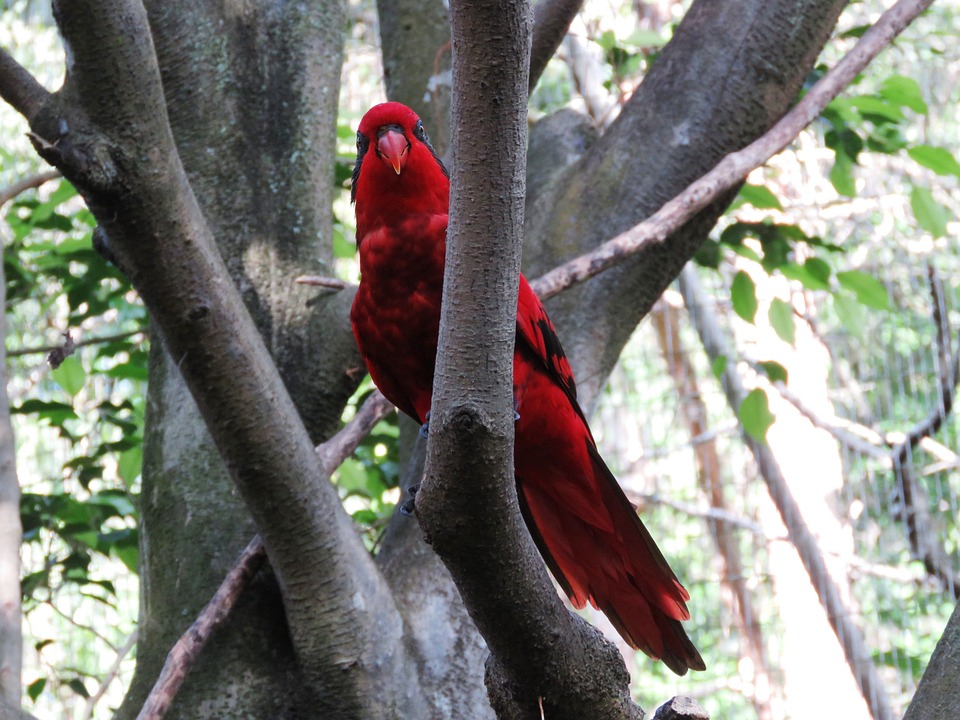Parrot training requires patience, consistency, and a distraction-free environment. However, parrots, known for their curious nature, can easily become distracted by outside noises, hindering their ability to concentrate and learn. In this article, we will explore effective techniques to discourage parrots from becoming distracted by external sounds during training sessions. Additionally, we will address some commonly asked questions about parrot training.
Parrots have highly sensitive hearing, which allows them to detect and mimic a wide variety of sounds. While this is a remarkable ability, it also means that they can easily become distracted by external noises, such as doorbells, phone rings, or street sounds. These distractions can disrupt their focus and hinder the progress of training sessions. Understanding the impact of outside noises is crucial for effectively training your parrot.
To discourage parrots from becoming distracted by outside noises during training, it is essential to create a distraction-free environment. Here are some tips to achieve this:
1. Choose a quiet room: Select a room in your home that is away from high-traffic areas or loud appliances. This will help minimize the chances of your parrot being distracted by external sounds.
2. Close windows and doors: Ensure that all windows and doors in the training room are securely closed to minimize outside noises from entering. This will create a calmer environment for your parrot.
3. Use curtains or blinds: Install curtains or blinds on windows to block visual distractions that may cause your parrot to become alert or lose focus during training.
Sound conditioning techniques can help desensitize your parrot to external noises, reducing their impact on training sessions. Follow these steps to implement sound conditioning:
1. Gradual exposure: Introduce your parrot to low-volume sounds gradually. Start with gentle, non-threatening noises and gradually increase the volume over time. This will accustom your parrot to different sounds without causing distress.
2. Positive reinforcement: Pair the exposure to external sounds with positive experiences, such as offering treats or engaging in a favorite activity. This creates a positive association with the sounds and helps your parrot remain focused during training.
For parrot owners who live in noisy environments or face persistent distractions, creating a soundproofed training space can be highly beneficial. Consider the following options:
1. Acoustic panels: Install acoustic panels on the walls of the training room to absorb and reduce sound reflections. This helps create a quieter environment for training sessions.
2. White noise machines: Use white noise machines or calming background music to mask external noises and provide a consistent sound environment for your parrot.
Now, let’s address some commonly asked questions about parrot training:
Q1: Can parrots ever completely ignore outside noises during training?
While it may be challenging for parrots to completely ignore outside noises, employing the techniques mentioned in this article can significantly reduce their impact on training sessions. Consistency, patience, and a distraction-free environment are key to successful parrot training.
Q2: Should I punish my parrot for getting distracted during training?
No, punishment is not recommended during training sessions. Instead, focus on positive reinforcement techniques, rewarding your parrot for good behavior and attention. Punishment can lead to stress and anxiety, further hindering the training process.
Q3: How long does it usually take for parrots to become less distracted by outside noises?
The time it takes for parrots to become less distracted by outside noises varies from bird to bird. Some parrots may adapt more quickly, while others may require more time and patience. Consistency and positive reinforcement are key factors in helping your parrot become less reactive to external sounds.
Q4: Are there any specific training exercises to improve focus and minimize distractions?
Yes, there are various training exercises that can improve your parrot’s focus and minimize distractions. These include target training, recall training, and step-up training. Consistency and repetition are vital to building focus and minimizing distractions during these exercises.
In conclusion, parrot training can be challenging when external noises distract your feathered friend. However, by creating a distraction-free environment, utilizing sound conditioning techniques, and potentially setting up a soundproofed space, you can help your parrot stay focused and engaged during training sessions. Remember to be patient, consistent, and always use positive reinforcement techniques. Happy training!









